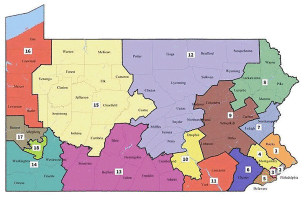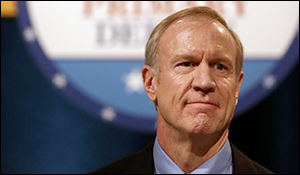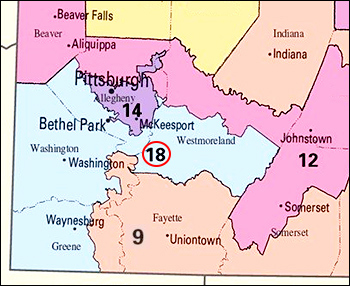By Jim Ellis
March 26, 2018 — After the three-judge federal panel and the US Supreme Court both rejected Republican legal appeals to overturn the new state Supreme Court-imposed congressional map, candidates submitted their official filing documents to run in the new districts.We now have an idea as to where the key Pennsylvania political battles will occur, and who some of the key players will be. Today we take a look at the first nine districts. Tomorrow, we’ll review CDs 10-18. The party primaries are scheduled for May 15.
District 1 – Rep. Brian Fitzpatrick (R-Levittown)
Freshman Rep. Fitzpatrick faces attorney Dean Malik in the Republican primary. Three Democrats filed, including Scott Wallace, grandson of WWII era Vice President Henry Wallace (D). Attorney Rachel Reddick and non-profit organization executive Steven Bacher round out the Democratic field. The new 1st is highly competitive, and this race could well evolve in to a toss-up campaign.
District 2 – Rep. Brendan Boyle (D-Philadelphia)
Originally designed as an open seat, or the place where retiring Rep. Bob Brady (D-Philadelphia) may have run, the new 2nd will now go to two-term Rep. Brendan Boyle who formerly represented a district anchored in Montgomery County. The new 2nd contains the eastern part of Philadelphia and is a safely Democratic seat. Radio talk show host Michele Lawrence is challenging Boyle in the Democratic primary, and Republican David Torres will be his general election opposition. Rep. Boyle will have little trouble in securing this new district.
District 3 – Rep. Dwight Evans (D-Philadelphia)
This is a heavily African American Democratic seat that freshman Rep. Dwight Evans will have little trouble holding. He has only minor opposition in both the Democratic primary and the general election.







